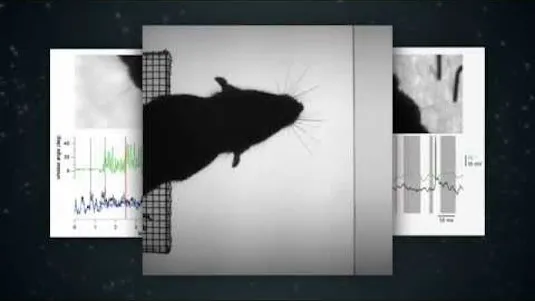Free Online Neuroscience Courses and Certifications 2024
Neuroscience is the study of the nervous system, including the brain, spinal cord, and peripheral nerves. It is a multidisciplinary field, combining elements of biology, chemistry, psychology, and medicine. People interested in neuroscience can pursue courses in biology, psychology, and medicine, and can pursue careers in research, clinical practice, and teaching.
Popular Courses
















Neuroscience Courses
Career Trends
Career Prospects | Average Salary | Position Overview |
| Research Professional | $84,744 per year | Research Professionals aid social scientists in conducting laboratory, survey, and other forms of social science research. They may assist with preparing findings for publication, performing laboratory analysis, quality control, and managing data. |
| Sales Specialist | $51,459 per year | The Sales Specialist is responsible for developing and executing sales strategies, acquiring new clients/memberships/business, retaining existing clients/memberships, negotiating contracts, identifying entrepreneurial opportunities, and implementing relationship management strategies. |
| Senior Research Associate | $47,287 per year | As a Senior Research Associate, your job responsibilities would include preparing proposals for funding agencies, operating research equipment, supervising graduate students and other lab/field personnel involved in research. Additionally, you would be responsible for designing, planning, conducting, and coordinating experiments to support various research projects. |
| Data Analyst | $71,004 per year | The role of a Data Analyst involves reviewing data to identify important insights into a business's customers, as well as discovering ways in which the data can be utilized to solve problems. Additionally, they communicate this information to company leadership and other stakeholders in a clear and understandable manner. |
| Senior Director | $312,732 per year | Senior Directors may have the responsibility of planning and supervising the work of managers and employees across the entire organization or be accountable for managing a particular department, such as sales or marketing. |
Educational Paths
1. Bachelor's Degree: Pursuing a Bachelor's Degree in Neuroscience or a related field is an excellent starting point for learning about the field.
2. Master's Degree: A Master's Degree in Neuroscience can provide a more in-depth understanding of the field and prepare individuals for research or clinical roles.
3. PhD Program: A PhD in Neuroscience is typically required for research or academic careers in the field. It involves extensive research and training in areas such as neurobiology, neuropsychology, and neuroimaging.
4. Online Courses: Many universities offer online courses in neuroscience, covering topics such as the brain, cognitive psychology, and neural engineering.
5. Workshops and Seminars: Attending workshops and seminars on neuroscience can provide opportunities to learn about the latest research and developments in the field.
6. Self-Study: There are many books, articles, and online resources available for individuals to learn about neuroscience concepts and research on their own.
Frequently Asked Questions and Answers
Q1: What are the best undergraduate programs in neuroscience?
For those looking to pursue a degree in neuroscience, three of the best undergraduate programs are offered at Columbia University in New York, NY, Johns Hopkins University in Baltimore, MD, and the University of California, Los Angeles in Los Angeles, CA. Columbia University offers a Bachelor's degree in Neuroscience, and Johns Hopkins University was tied for 10th place in U.S. News & World Report's 2019 rankings of the best undergraduate neuroscience programs. The University of California, Los Angeles offers a Neuroscience major, as well as a Neuroscience minor. All three of these universities offer excellent opportunities for students to pursue their studies in neuroscience.
Q2: What colleges offer neuroscience major?
Many colleges offer a Neuroscience major, including Cedar Crest College, Central Christian College of the Bible, Central Washington University, Culinary Institute of America, Graceland University-Lamoni, Illinois State University, Kansas City Art Institute, Kean University, MacCormac College, and Massachusetts College of Art and Design.
Q3: What are the best universities for Neuroscience?
If you're looking for the best universities to study Neuroscience programs, Harvard University, Stanford University, University of California–San Francisco, Massachusetts Institute of Technology, Columbia University, University of California–San Diego, Johns Hopkins University, University of California–Los Angeles, University of Pennsylvania, and Yale University are all excellent choices. Each of these universities offers a variety of Neuroscience programs, ranging from undergraduate to doctoral degrees. Additionally, many of these universities offer research opportunities and internships to help students gain valuable experience in the field.
Q4: What Neuroscience courses can I find on AZ Class?
On this page, we have collected free or certified 170 Neuroscience online courses from various platforms. The list currently only displays up to 50 items. If you have other needs, please contact us.
Q5: Can I learn Neuroscience for free?
Yes, If you don’t know Neuroscience, we recommend that you try free online courses, some of which offer certification (please refer to the latest list on the webpage as the standard). Wish you a good online learning experience!
ADVERTISEMENT
